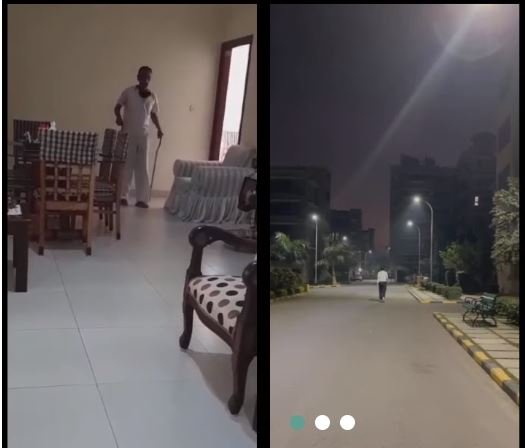Chief Complaints
- A 57-year-old army personnel experienced lumbar intervertebral disc prolapse after lifting a heavy object, leading to severe lumbar pain and loss of sensation below the knees. The patient progressively lost control over his limbs and was not able to walk at all. - He was taken to Command hospital in pune and was advised to undergo spinal surgery on emergency basis . - But the patient denied and was searching for alternative therapy options. - Patient came to healthzia by a reference from his friend and started taking BMPT therapy in 2021.
Diagnosis
- The MRI revealed lumbar intervertebral disc prolapse (Lumbar spondylosis )and associated changes. - Attached is his MRI reports with the case.
BMPT Analysis:
- Identified posterior pelvic tilt. - Drooping shoulders. - Noted shoulder and hip misalignment - Recognized a waddling gait. - Detected proprioception issues, affecting the patient's awareness of body positioning.
Progress After BMPT Therapy
- Remarkably, within 2 days of postural therapy, the patient could walk without stick support. - Afterwards - Substantial improvement in overall walking, including the waddling gait. - Elimination of pain, tingling, and got back the sensations below the knee. Only sensation in right toe were still to come. - Improved posture, particularly addressing the pelvic tilt. - Regained the ability to put weight on toes. - Resumed daily activities and learned to lift objects with ergonomic considerations. - Pain scale was reduced almost from 10 to 0 in 15 sessions. - The pain scale reduced from an intense 10 to a remarkable 0 in initial 15 sessions only. - In a month patient was fully recovered of his pain , got back sensation all over legs below knee ,was able to walk properly. - Achieved the capability to walk & run 12 km daily, being an national athlete - Patient continued the therapy for 3 months in order to achieve full strengthening of body. - The patient continues regular follow-ups since 3 years without any relapse in complaintsuntil now. highlighting the effectiveness of BMPT therapy as a non-invasive alternative.
